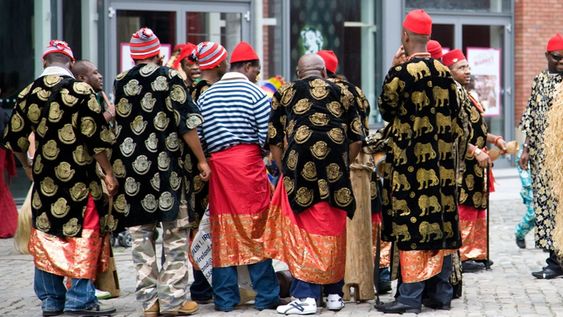Nigeria
ASATU leader advises Igbos to move their investments back home due to Lagos demolitions

Dr. John Metchi, the prime minister of the Anambra State Association of Town Unions (ASATU), has advised Igbo people in Lagos State to think about moving their investments back home.
Meche stated that a sizable area of land had been made available in the Umueri community, Anambra East Local Government, for Igbo traders and other companies to establish a worldwide marketplace.
In response to the continuous demolition of buildings in several areas of Lagos State, which has impacted numerous South East traders, he made this statement.
Read Also: Ohanaeze to the Igbos: Don’t leave Lagos
Because of the detrimental effects that the demolition is having on vendors and other businesses, Ohaneze Ndigbo and other socioeconomic groups are calling for a humane approach to this exercise. The demolition in Lekki, Alaba Market, Ajao Estate, Abule Egba, Ladipo Market, and other areas has sparked intense controversy.
Tokunbo Wahab, the state’s commissioner for environment and water resources, on behalf of the Lagos State administration, however, has stated that the demolitions were limited to unlawful buildings constructed without permits and that the purpose of the action was to restore order.
In a statement released on Friday, Metchie—who also serves as the International Association of World Peace Advocates’ (IAWPA) African Director—said that given the state government’s insistence that only illegal structures were impacted, it was challenging to determine at this time whether or not the demolitions were intentionally directed at Igbo traders, as some of the victims had claimed.
Metchie stated that Umueri, which he claimed already had an international cargo and passenger airport, provided the best destination for investment. He said that the only practical and long-term solution to the ugly and frequent demolitions in Lagos was for Igbo traders and those in other businesses to take advantage of the situation and begin investing at home.
It is really regrettable and concerning what is occurring in Lagos with regard to the demolition of homes or businesses owned primarily by Igbo traders.
However, if you examine it in light of the accusations and counterclaims, you will realise that drawing a conclusion at this time is challenging.
This is due to the fact that, despite the claims of the impacted traders that the demolition was intended to harm them and their companies because they are Igbo, the state government is waving papers that purport to show that only illegally constructed buildings were being taken down in an effort to restore order.
As a result, our only option at this time is to counsel the state administration to execute the exercise cautiously. This is due to the fact that it is unethical to take away someone’s means of subsistence without offering them alternatives.
“Once more, whether the buildings were constructed legally or not, government representatives approved the allocations—possibly in exchange for shady payments.
To lessen the suffering brought on by the demolitions, he said, “Lagos, as a responsible government, should consider paying compensations to the affected traders and other businesses.”
According to Metchie, who also serves as the President-General of the Umueri General Assembly, returning home is the only long-term and sustainable solution to the problem.
This is a call to return home for Igbo traders and other enterprises in Lagos, as well as other parts of Nigeria and the world.
“You are still a stranger overseas, regardless of what you own. Even if we support and believe in a single, united Nigeria, it makes sense to invest locally.
We have a sizable amount of land in Umueri that can support a global market. He went on, “Umeri already has an international airport for passengers and cargo.
